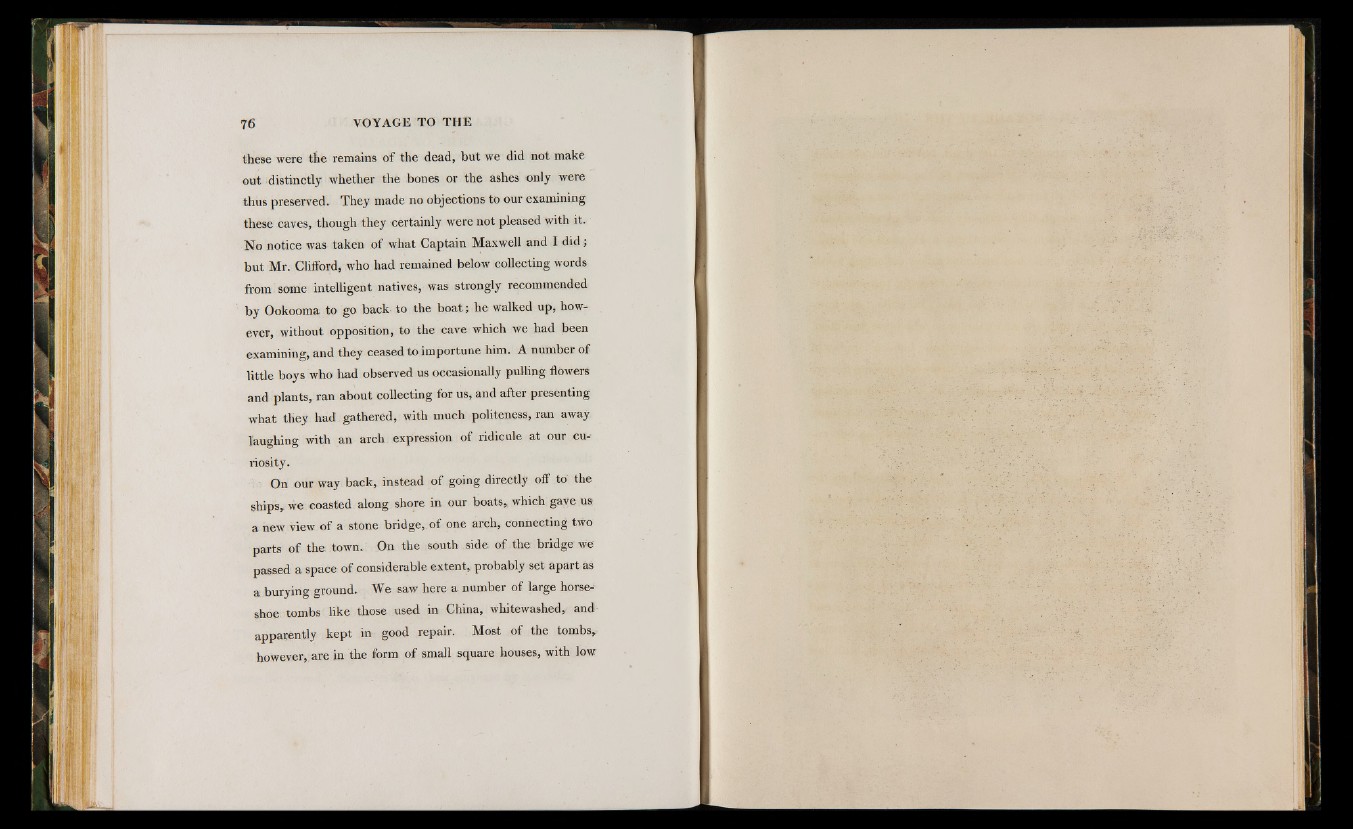
these were the remains of the dead, but we did not make
out distinctly whether the bones or the ashes only were
thus preserved. They made no objections to our examining
these caves, though they certainly were not pleased with it.
No notice was taken of what Captain Maxwell and I did >
but Mr. Clifford, who had remained below collecting words
from some intelligent natives, was strongly recommended
by Ookooma to go back to the b o a t; he walked up, however,
without opposition, to the cave which we had been
examining, and they ceased to importune him. A number of
little boys who had observed us occasionally pulling flowers
and plants, ran about collecting for us, and after presenting
what they had gathered, with much politeness, ran away
laughing with an arch expression of ridicule at our cuj
riosity.
On our way back, instead of going directly off to the
ships, we coasted along shore in our boats, which gave us
a new view of a stone bridge, of one arch, connecting two
parts of the town. On the south side of the bridge we
passed a space of considerable extent, probably set apart as
a burying ground. We saw here a number of large horseshoe
tombs like those used in China, whitewashed, and
apparently kept in good repair. Most of the tombs,
however, are in the form of small square houses, with low